
I wrote the following article some time ago and it was published on The Royalist. However, since it's in an area which cannot always be accessed, I decided to copy it here.
Victoria and Albert’s Heir: Raising Bertie
The Raising of a Prince of Wales
By Susan Flanders
Victoria looked down at her second born child on November 9, 1841, just hours old and saw a beautiful baby boy with ‘large and dark eyes, a good high forehead, a pretty but rather large nose, a nice little mouth and chin.’ At Buckingham Palace, the Queen rested after the delivery
This baby, who would be named Albert Edward, was the first male heir born to the throne in over 70 years. All throughout Britain there was jubilation and excitement as guns were fired, crowds cheered and Londoners celebrated and sang “God Save the Queen.” Victoria was pleased that a male heir had been born, and thought that if the boy had inherited any of his dear father’s traits and qualities, he would do well.
The young parents entrusted their new baby to the royal nursery where he met his older sister, Vicky, called “Pussy” by the family. Although the baby was well taken care of, over time Victoria found herself growing uneasy about the child and having anxieties. He just didn’t seem to be doing the things that little Vicky had done at the same age. Albert also noticed the difference in his progress. The parents were concerned, but for the time being kept their fears to themselves.
As the children grew, more siblings arrived and before long the nursery was bustling with activity. The Queen was quite happy with the appointment of Lady Lyttleton, who would oversee the nursery. Albert found himself involved in all things relating to the children---from their schedules to what they ate. Their education started very early. Meals were basic and spartan and there would be exercise everyday.
Intellectually, Vicky quickly surpassed her little brother. Bertie couldn’t keep up with his older sister. While “Pussy” was robust and quick, her brother seemed slow and awkward. Little Vicky also had a firm grasp on her studies----she excelled, especially in languages and art ----while Bertie could barely make it through his lessons. To make matters worse for the Prince of Wales, his sister Vicky was poised, and had a quick wit. She dazzled her parents, especially Albert, who loved her more than he believed it was possible to love another human being. It would be difficult for any sibling to measure up, and in Bertie’s case, especially difficult. To Victoria and Albert’s credit, they did shower all the children with attention.
“The boy” as he was referred to by his mother, continued to struggle in his lessons. The education continued, the family grew and soon it was baby Alice who seemed to be catching up to Bertie. The young boy became very close with Alice and she tended to protect and shield him, acting as a buffer when she knew he was hurt. These two youngsters were to have a very special bond between them all of their lives.
About her son, the queen wrote to a favorite relative, “You will understand how fervent are my prayers, and I am sure everybody’s must be, to see him resemble his father in every, every respect, both in body and mind.” Victoria clung to this wish. Inevitably, the parents were a bit disappointed, but were far from giving up hope. .
Eventually, he was put in a class with his younger brother Affie, but the demands upon him did not stop. Fully aware of his future position, his parents went to their counselor and friend Baron Stockmar for guidance. The Baron wrote several memorandums concerning the boy’s education and what needed to be done to promote, ‘the principles of truth and mortality.’ Victoria and Albert had always been studious and had a hard time understanding why their son was having such difficulty in applying himself.
An even stricter regimen of study was imposed on him, with sometimes Sunday being his only day off. Two tutors were brought on----first Mr. Birch and then Mr. Gibbs. Although he tried, he appeared many times to be melancholy and sometimes would break out into fits of temper. It did not help that the Prince of Wales rarely played with boys his own age and knew nothing but life at his mother’s court-----that is, what little he did see of it. He was reported to have been “naughty” and his behavior far from princely, Because of his actions, Albert was forced to go and deal with the boy.
Things changed a little in the summer in 1856. On a state visit to Paris, the Queen and Prince Albert decided that their two eldest children should accompany them. Once in the beautiful city, the Prince was awed by it and also enraptured with Napoleon’s wife, Empress Eugenie. Not only did he find her beautiful----stunning, she was warm and sweet to the children, taking time to talk to them and give them little gifts. It is no wonder that the Prince began to develop his life long love affair with France, and its utter sophistication.
When he turned 17, he was given an allowance by his parents and was allowed to use The White Lodge in Richmond Park as his new home, with supervision. His studies were not to stop, however, but he was given his first taste of freedom.
The Prince of Wales’s “problems” were considered typical conversation within the family. Daughter Vicky had recently married into the royal house of Prussia and was living far from England. Her mother chose her as her confidante----she did not have many----and wrote to her frankly and intimately. The Queen referred to The Prince of Wales without actually writing his name, because she could not bear to. In March, 1858 she wrote that, ‘Affie is going on admirably; he comes to luncheon today and oh! when I see him and Arthur (Affie) and look at …! (You know what I mean!) I am in utter despair! The systematic idleness, laziness-----disregard for everything is enough to break one’s heart, and fills me with indignation.’ She made Vicky promise not to mention this to another human being.
Victoria’s true feelings toward her eldest son did not fade with time. Months later she confided again to Vicky, ‘he is not at all in good looks; his nose and mouth are too enormous and as he pastes his hair down to his head and wears his clothes frightfully---he really is anything but good looking. That coiffure is really too hideous with his small head and enormous features. He is grown however.’
Hearing this was difficult for Vicky, who loved her brother and was now so far from her beloved England. Almost pleadingly, she wrote to her mother, ‘One thing pains me----when I think of it and that is the relation between you and Bertie! In the railway carriage to Dover I thought about it, and wished I could have told you how kindly, nicely, properly and even sensibly he spoke, his heart is full of affection, or warmth of feeling and I am sure it will come out with time and by degrees. He loves his home and feels happy there and those feelings must be nurtured, cultivated for if once lost they will not come again so easily’
PART II Continued Below





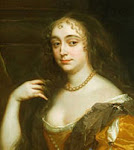



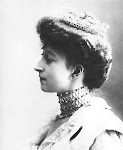

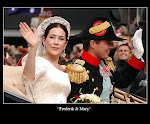

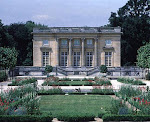
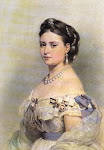
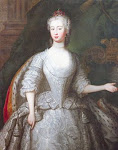
+Mary++Princess+of+OrANGE.jpg)


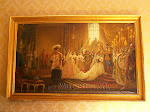
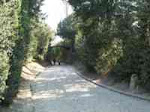

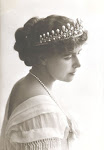
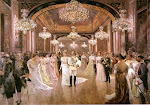


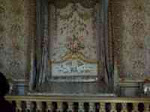


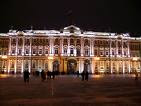


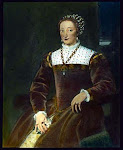


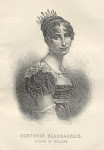



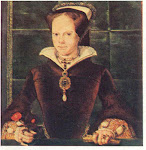
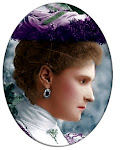

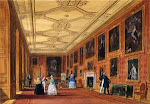

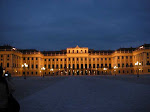

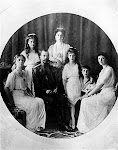
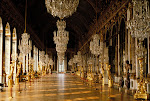
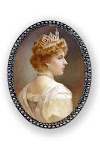

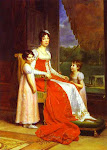

.jpg)
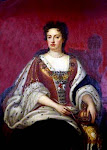

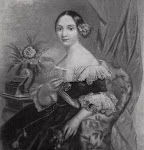
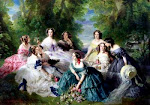

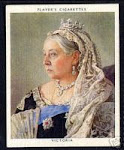
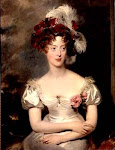
.png)
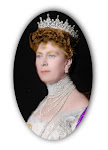
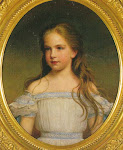
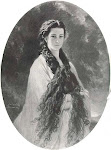
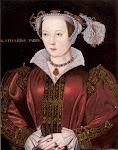
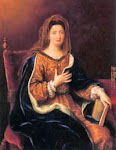

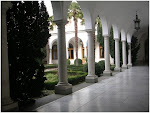
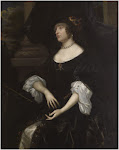
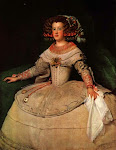
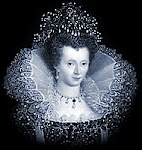
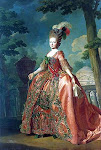


4 comments:
Wonderful blog, Sue. I can tell this is a subject that you love...it shines through in your writing and the wonderful pictures as well. I, for one, will be keeping this place bookmarked for the future!
~Diane
Just spent too much time reading your royalty posts. Fascinating stuff!
Marvelous articles, Susan! Be sure to let us know when you post.
Jacquie
What a wonderful blog, Susan!
I've added this to my links on my blog.
Well done.
Post a Comment